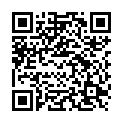|
|
|
| Module code: WIBAS-600 |
|
|
- |
|
30 |
| Semester: 6 |
| Mandatory course: yes |
Language of instruction:
German |
Assessment:
Recognition of the practical study phase by a university professor
[updated 30.07.2021]
|
WIBAS-600 (S450-0074) Industrial Engineering, Bachelor, ASPO 01.10.2007
, semester 6, mandatory course
|
|
The total student study time for this course is 900 hours.
|
Recommended prerequisites (modules):
None.
|
Recommended as prerequisite for:
|
Module coordinator:
Prof. Dr.-Ing. Dieter Arendes |
Lecturer: Prof. Dr.-Ing. Dieter Arendes
[updated 03.07.2009]
|
Learning outcomes:
After successfully completing this module, students will •be able to put their theoretical knowledge into practice by solving concrete problems. They will have well-founded practical experience and can assert themselves in an operational environment.
[updated 30.07.2021]
|
Module content:
Procedure: Students must find an employer, either independently or with the support of the university, who will cooperate with them during the practical phase. The employment contract signed by the company must be submitted to the office responsible for internships/practical study at the respective department. In addition, students must have a supervising professor whose name must also be passed on to the office responsible for internships/practical study at the respective department.
During the practical phase, the supervising professor serves as the students’ contact person.
At the end of the practical phase, students must present the office responsible for internships/practical study at the respective faculty with an employer’s reference that will be passed on to the supervising professor in copy. On the basis of the student assessment in the employer’s reference and the supervising professor’s impression, the supervising professor will then accept or reject the work performed as a practical phase.
Content depends on the resp. task and should be coordinated between the student, the university professor and the company.
[updated 30.07.2021]
|
Teaching methods/Media:
-
[updated 30.07.2021]
|
Recommended or required reading:
-
[updated 30.07.2021]
|

